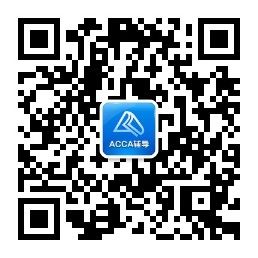掃碼下載APP
及時接收考試資訊及
備考信息
Competency frameworks are used as a benchmark for professional bodies to ensure that their members possess relevant and up-to-date skills which allow them to undertake their role competently and effectively. These frameworks are designed on the basis of consultation with a number of stakeholders including trainees, qualified members, tuition providers, employers, and trade and professional associations. This consultation can take the form of surveys, focus groups or critical incident reporting. This consultation process helps to ensure that the competences developed in students and trainee professionals are relevant, practical and up to date.
The International Federation of Accountants (IFAC), ACCA and other global professional accountancy bodies have developed and used competency frameworks to guide education and training practice. Increasingly, government agencies use competency frameworks (sometimes known as occupational standards) as a basis for consistent and flexible qualification frameworks, where qualifications from different professions are required to include competences relating to these occupational standards to ensure that those qualified are ‘fit for the role’ and can make an immediate and continuing contribution at work.
IFAC has specified competences and skills required in professional accountants in IES 3, Professional Skills and General Education effective from 1 January 2005.
IES 3 groups together five broad sets of skills professional accountants require. Within these main groupings, the particular skills to be acquired are specified as follows:
1 智力技能 (Intellectual skills)
Ability to locate, obtain, organise and understand information from human, print and electronic sources
Capacity for inquiry, research, logical and analytical thinking, powers of reasoning and critical analysis
Ability to identify and solve unstructured problems which may be in unfamiliar settings
2 技術和實用技能 (Technical and functional skills)
Numeracy (mathematical and statistical applications) and IT proficiency
Decision modelling and risk analysis
Measurement
Reporting
Compliance with legislative and regulatory requirements
3 個人能力 (Personal skills)
Self-management
Initiative influence and self learning
Ability to select and prioritise within restricted resources and tight deadlines
Ability to anticipate and adapt to change
Consider implications of professional value, ethics and attitudes to decision making
Professional skepticism
4 人際關系和溝通能力 (Interpersonal and communication skills)
Work with others in a consultative process to withstand and resolve conflict
Work in teams
Interact with culturally and intellectually diverse people
Negotiate acceptable solutions and agreements in professional situations
Work effectively in a cross - cultural setting
Present, discuss, report and defend views effectively through formal, informal, written and spoken communication
Listen and read effectively, including sensitivity to cultural and language differences
5組織和經營管理技能 (Organisational and business management skills)
Strategic planning, project management, of people and resources and decision making
The ability to organise and delegate tasks, to motivate and to develop people
Leadership
Professional judgment and discernment

掃一掃,更多精彩內容等你來>>
上一篇:P5知識點:環境管理會計
Copyright © 2000 - www.electedteal.com All Rights Reserved. 北京正保會計科技有限公司 版權所有
京B2-20200959 京ICP備20012371號-7 出版物經營許可證 ![]() 京公網安備 11010802044457號
京公網安備 11010802044457號
套餐D大額券
¥
去使用 主站蜘蛛池模板: 婷婷日韩 | 国产午夜三级 | 欧美日韩三级 | 羞羞视频在线观看免费视频 | 精品国产青草久久久久96 | 国产特级毛片aaaaaaa高清 | 久久综合成人网 | 99久久精品国产麻豆演员表 | 成人性生交大片免费看中文网站 | 精品av天堂毛片久久久借种 | 国产成人精品久久二区二区 | 日韩一区不卡 | 亚洲一区二区三区中文字幕 | 国产激情网站 | 免费看男女www网站入口在线 | 国产成人精品久久久 | 999精品视频一区二区三区 | 国产精品午夜一区二区欲梦 | 国产最新av| 国产中文字幕在线观看 | 成人黄色一级片 | 精品国产一区二区三区久久影院 | 成人一级片 | 性猛交xxxx乱大交孕妇印度 | 国产黄色在线看 | 久一在线 | 国产一区二区成人在线 | 一区二区自拍 | 日韩精品视频一区二区三区 | 成人a级网站 | 嫩草在线观看视频 | 亚洲精品高清视频 | 欧美三区 | 久久久精品一区二区 | 中文字幕在线观看一区二区三区 | 日韩视频一区二区三区四区 | 久久久精品 | 国产精品三级在线 | 午夜视频一区二区三区 | 国产精品无码永久免费888 | 黄色avv |